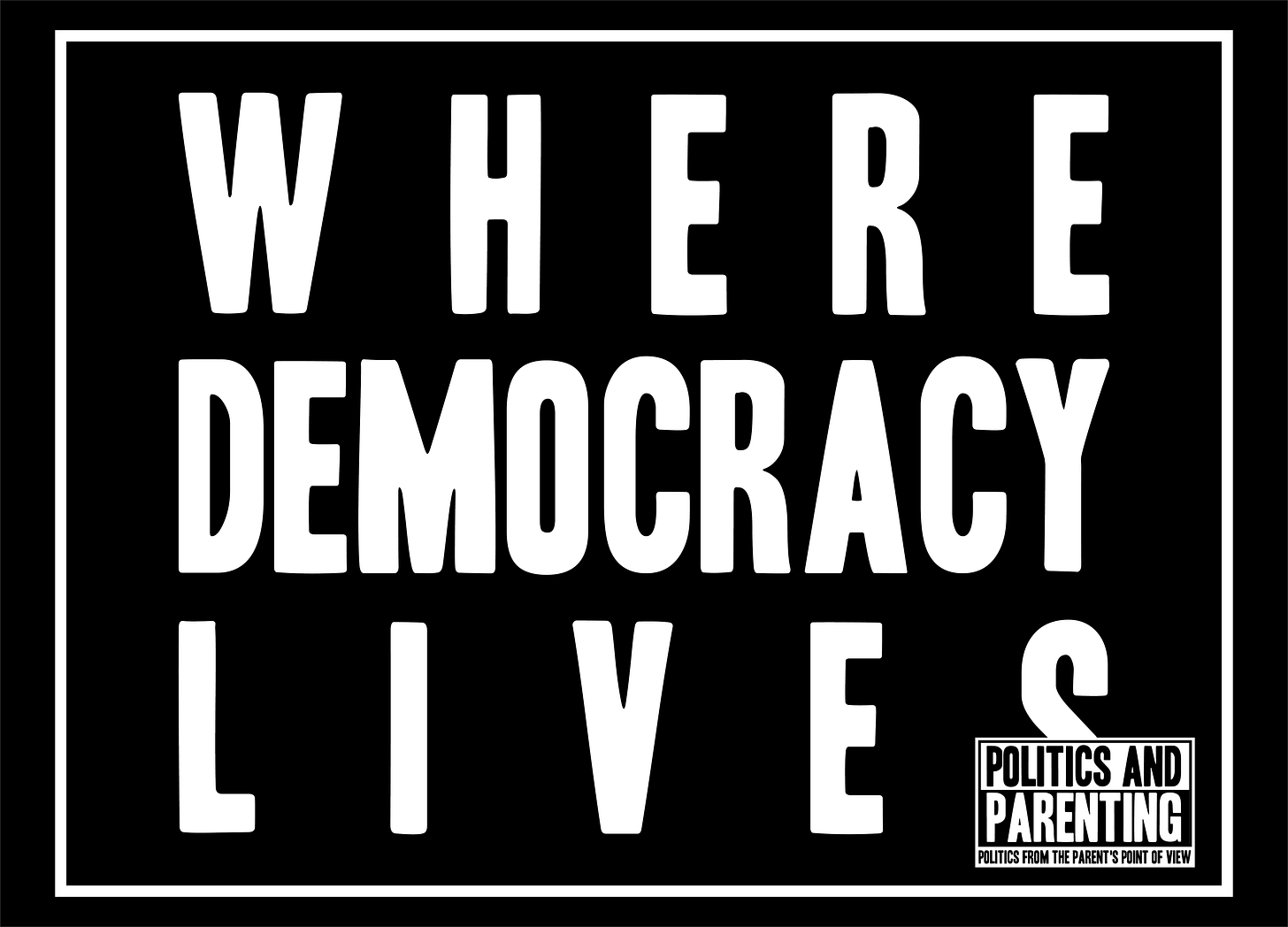Where Democracy Lives.
Thoughts on How Democracies Die.
So, I decided to pick up How Democracies Die from my bookshelf. Written by Harvard University political scientists Steven Levitsky and Daniel Ziblatt, this was a New York Times bestseller in 2018 during Trump’s first presidency, and I thought now was a good time to read it.
The book directs us to focus on restoring norms of mutual toleration and forbearance—unwritten rules that have traditionally acted as guardrails for our democratic republic. It covers the importance of institutions like parties, the courts, and the other checks and balances built into and around our republican system.
But I couldn’t shake the feeling that the book spends too much time blaming the Republican Party, when the real failure lies with Congress.
If we’re asking how democracies die, shouldn’t we first ask: Where democracy lives?
Democracy lives in representation—in a large, diverse legislative body that can connect all factions of society. Without a balanced and hospitable environment, democracy will struggle.
The book discusses polarization, racial and religious realignment, and rising inequality. I agree that those are real challenges. But I’d argue they stem from a deeper structural problem: 435 people cannot represent 330 million. That’s not a functioning representative democracy. Too few people are trying to manage too much complexity, and the system is failing to adapt.
The book concludes, “American democracy depends on us—the citizens of the United States.”
Well, I’m a citizen. And I don’t think my democratic vote counts for much of anything. That’s why I got into this. And what I found out is—as my grandad would say— it doesn’t count for what it used to.
After the 1920 Census, Congress failed to fulfill its constitutional responsibility and write a new apportionment bill. After nearly a decade of partisan fighting, in 1929, Congress made it permanent; they would no longer expand representation with the population. The people’s power was capped.
While America was “democratized,” with the 19th Amendment and the civil rights legislation of the 60s, our actual representation was diluted. The population continues to grow, and representation remains the same. Like pouring water into a bourbon, you may not notice at first, but once you do, you’ll want a new drink.
It's harder to reach your representative. It's harder for them to reach you. That space is filled by parties, the media, lobbyists, and big money. Districts are now so large that campaign costs skyrocket, making it easier for Filthy Rich Politicians to drown out normal citizens. Representation has become a numbers game, and the “citizens of the United States” are losing.
And when you feel like your vote doesn’t count and your government isn’t delivering—when the country is constantly at war, the debt is out of control, and immigration policy is a mess—it’s not surprising that people think the system is rigged against them.
History shows us that people crave freedom. For governments to be free, people need representation. The British wanted it; the American colonies demanded it. The French revolutionaries did, too. Without adequate representation, the government becomes too distant, and people push back, often in populist waves.
When those in charge tell us how broken everything is and that it’s somebody else's fault, when the citizens are so far from their representatives that walls are built between them, when the people feel abandoned and alone–that’s when democracy dies.
We can blame Trump. We can blame Biden. But the deeper issue is structural, and the rise of populism, whether it’s MAGA or Occupy Wall Street, stems from a Congress that no longer represents enough of the people.
Congress is supposed to write the laws, oversee the executive branch, and serve the people. It’s not doing that, and it can’t because it’s overwhelmed. The failure is that we, the people, are not asking for more representation. We keep expecting someone else to fix it instead of helping out.
It’s tempting to blame presidents or parties. But we need to focus on the institution that’s failing at its core responsibility. And that’s Congress.
We the People need to get on the same page. To protect democracy, we need to secure a place for it to live. We need to focus on representation. Ask your representative, Why 435? Then ask them to declare for representation.
Peace & Love,
Jeff Mayhugh



